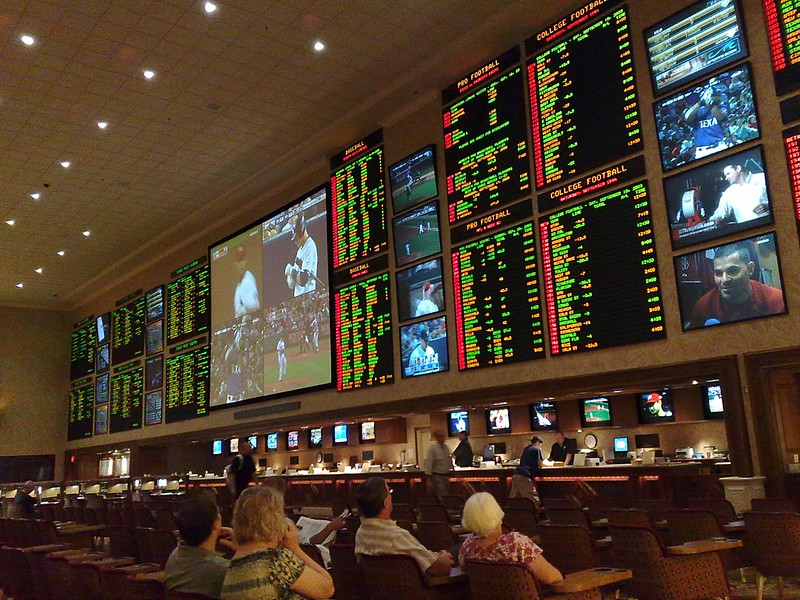On Sunday, Feb. 11, the Kansas City Chiefs beat the San Francisco 49ers in the most watched Super Bowl broadcast in history. Over 123 million viewers tuned in to watch the NFL’s newest dynasty cement its place in the history books. Along with record-breaking ratings, the largest event in American sports broke records for sportsbooks. FanDuel and DraftKings both saw a record breaking amount of bets placed on the event. FanDuel received $307 million from 14 million bets with 2.5 million active users making those wagers. DraftKings received $305 million from 12.4 million bets with 2.4 million users placing bets.
Sports betting has grown tremendously in the past six years. In 2018, the Supreme Court, in Murphy v NCAA, repealed a federal law banning wagers in competitive sports, leaving the legalization of sports betting to the states. Currently, 37 states and Washington D.C have legalized sports betting, with more states taking up the issue in the coming years. Sports betting has become a fixture in American sports and will only broaden its reach in the future.
Sports are a time of fellowship where people come together to cheer their favorite teams. It has become an integral part of American society. Yet, the integrity of this American cornerstone may become tainted in the coming years. Can we trust players and fans to be responsible with this new market or are we headed towards a public health catastrophe?
One key element in the growth of sports betting in America is the marketing strategies of sportsbooks. Those who watch any of the big four American sports leagues or consume any sports media know how prevalent these ads are. It’s almost impossible to escape an ad promoting bonus bets or $200 of in-app currency.
In 2023, sportsbooks spent almost $2 billion on advertising. The NFL has borne the brunt of this spending, with almost half of all TV impressions for sports betting ads. This spending has paid off, with analysts predicting there will be a 40 percent increase in adults who place bets by 2025. The leagues and sportsbooks both profit from these partnerships. The NFL recently signed almost $1 billion worth of sponsorships from sportsbooks.
As the industry grows, more people are getting roped into betting. Since legalization, Americans have spent almost $250 billion on sports bets. Almost a third of all Americans participated in this quarter-trillion dollar industry, with numbers being higher amongst young people. Half of all Millennials and 60 percent of Gen-Z adults have placed wagers on sports games. Young men are at the highest risk to become problem gamblers and according to experts, the rate at which young men are developing problem gambling addictions has only increased since legalization.
The statistics only get more dire when you factor in high school-aged men who legally cannot gamble. Around five percent of young people aged 11 to 17 have a gambling problem, which is double the percentage of adults with gambling issues. Starting gambling at a young age not only increases the risk of addiction later in life, but having a gambling addiction increases the risk of other substance addictions like drugs or alcohol.
Athletes are also falling victim to these problems. The NFL has seen a significant uptick in gambling violations. Most famously, All-Pro Jaguars receiver Calvin Ridley was suspended for a whole season for betting on NFL Games.
This issue is beginning to spiral out of control. More young people are exposed to hundreds of hours of advertising which increases their chances of addiction. Meanwhile, sports leagues and sportsbooks profit off vulnerable populations. There is a patchwork of regulations in each state, minimal funding for treatment programs and an onslaught of advertising. New federal regulations on advertising must be passed, as well as further resources combating addiction and better enforcement of gambling regulations. Sports betting provides a new experience for fans, creates jobs and is a new stream of needed income for states. However, the hidden and burgeoning public health emergency must not be ignored by regulators. It is time to reform and regulate the sports betting industry.
Samuel Cavalheiro can be reached by email [email protected] or on X @samcavalheiro1


















